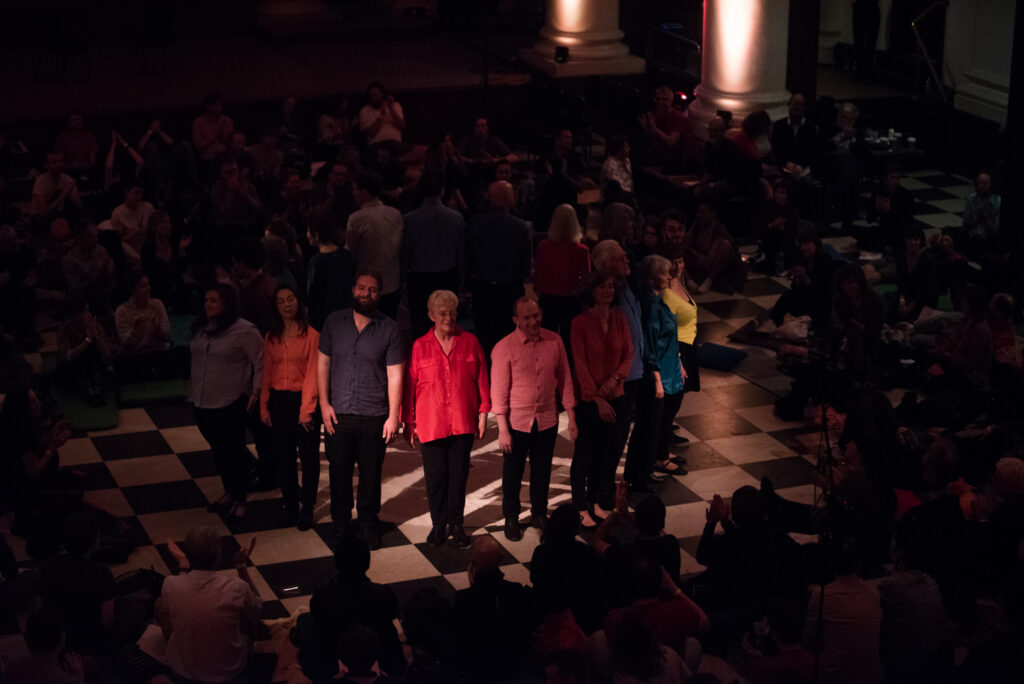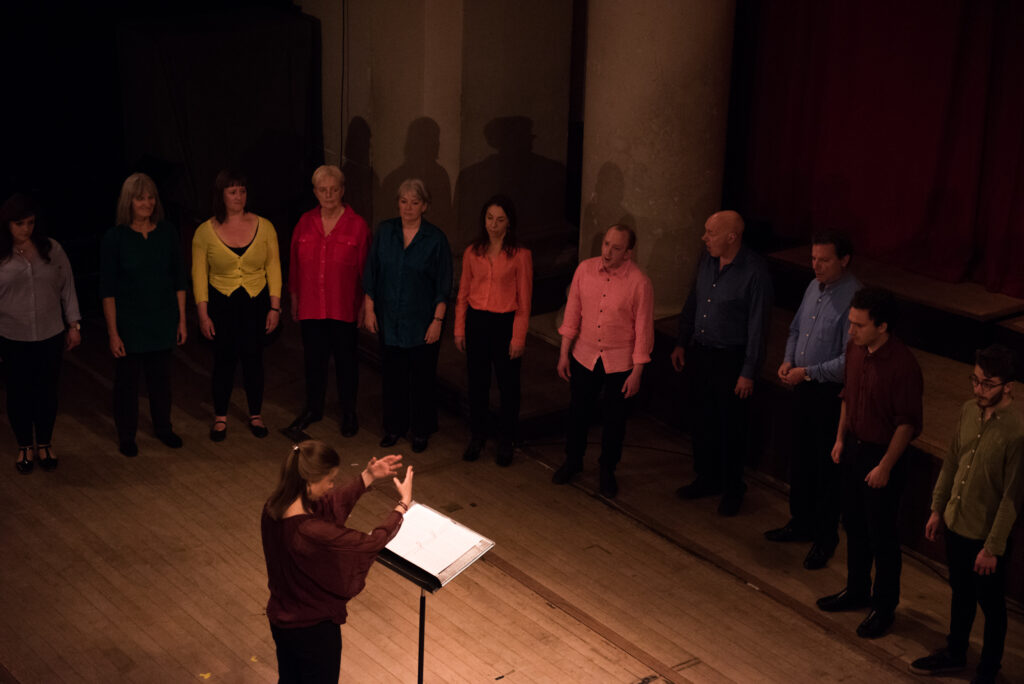
Pauline Oliveros (1932–2016) was a composer, performer, musical pioneer, and humanitarian. A rare woman among the predominantly male cohort of American composers born in the 1930s, Oliveros shared many interests of the 1960s ‘New York School’. She celebrated the sounds considered marginal by others, coining the term Deep Listening to describe what it meant to listen ‘in every possible way to every thing possible to hear no matter what you are doing…Deep Listening represents a heightened state of awareness and connects to all that there is’. Oliveros was a pioneer of electronics, meditative music, improvisation, alternate tuning systems, contemporary accordion playing, and multimedia events. Her work with myth, ritual, and the environment had a profound influence. Oliveros was a founding member of the San Francisco Tape Music Center in the 1960s and served as its first director when it moved to Mills College, where she was the Darius Milhaud Artist-in-Residence. Among Oliveros’s many achievements were winning the Gaudeamus Composition prize (1962), representing the U.S. at the World Fair in Osaka (Japan), being honoured with a retrospective at the John F. Kennedy Center for the Performing Arts in Washington D.C., receiving a letter of distinction from the American Music Center, winning the the John Cage Award (2012) of the Foundation for Contemporary Arts, the GigaHertz Preis from ZKM Karlsruhe for lifetime achievement in Electronic Music, the Resounding Vision Award for Life Time Achievement from Nameless Sound in Houston, and honorary membership in the Society for American Music. Rock Piece (1979) invites participants to choose a pair of resonant rocks for use as percussive instruments. After listening for environmental pulses each participant establishes an independent pulse with their rocks. The pulse is to be maintained steadily without any rhythmic interpretation or accents. Oliveros instructs participants who perceive that they are synchronizing exactly, or in a simple multiple or division by 2 or 3 of another participant’s pulse, to stop in order to listen and begin a new pulse that is independent in rate from all other pulses. The Space of Spirit: Unfolding the New Born Lotus (1999) was written for nine musicians to perform in the various spaces inside and outside of Grace Cathedral, San Francisco. MMM, a Lullaby for Daisy Pauline (1980) reflects Oliveros’s interest in tuning, specifically musicians tuning to one another. Her instructions include ‘Hum the sound of pleasure as if you were serenading your best loved infant…play with the MMM sound by adding vowels and dipthongs between the M’s using any repetitions or prolongations…stay open to your own sensations and imagine gradually expanding your awareness to sensing your surroundings’.

